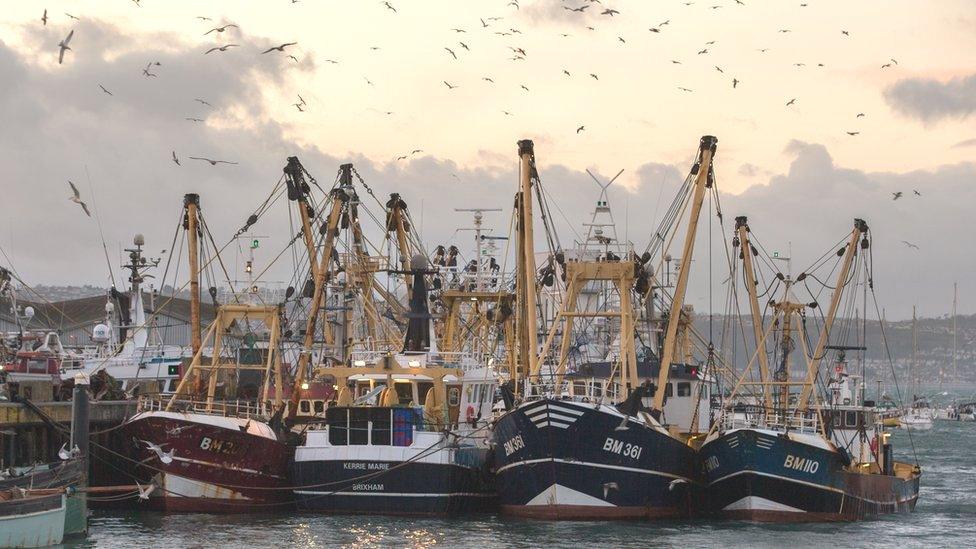Brexit: Lough Neagh eel fishermen 'concerns' over future
- Published
- comments
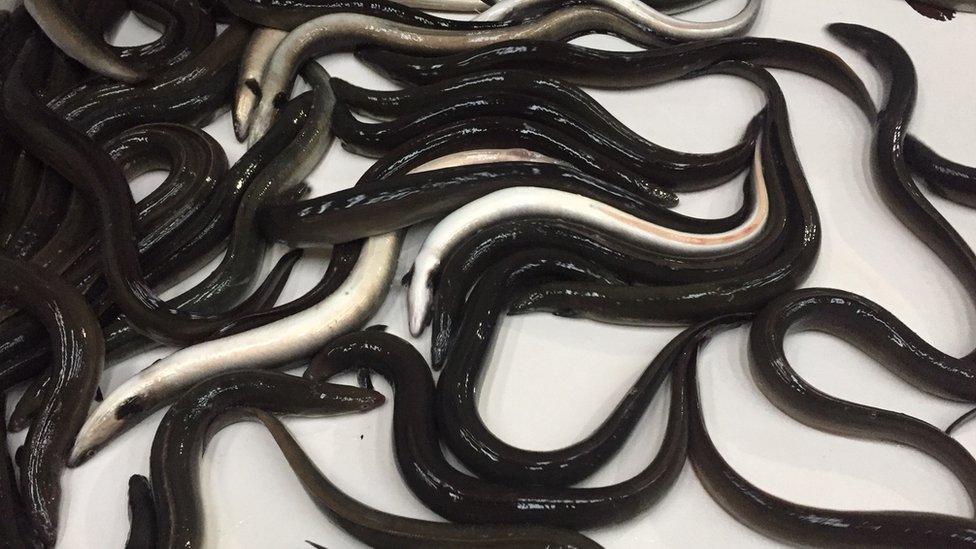
Fishermen on Lough Neagh have said they have significant concerns about the future of the industry after Brexit.
They are licensed to catch eels, which are a critically endangered species, because they have a management plan approved by the European Union.
It means that they are fishing in a way that will not damage the European eel population.
However, after Brexit that licence will lapse.
The fishermen have to make a fresh application for scientific approval to continue taking eels.
Permission is granted through the Convention on International Trade in Endangered Species (CITES), to which both the UK and the EU are signatories.
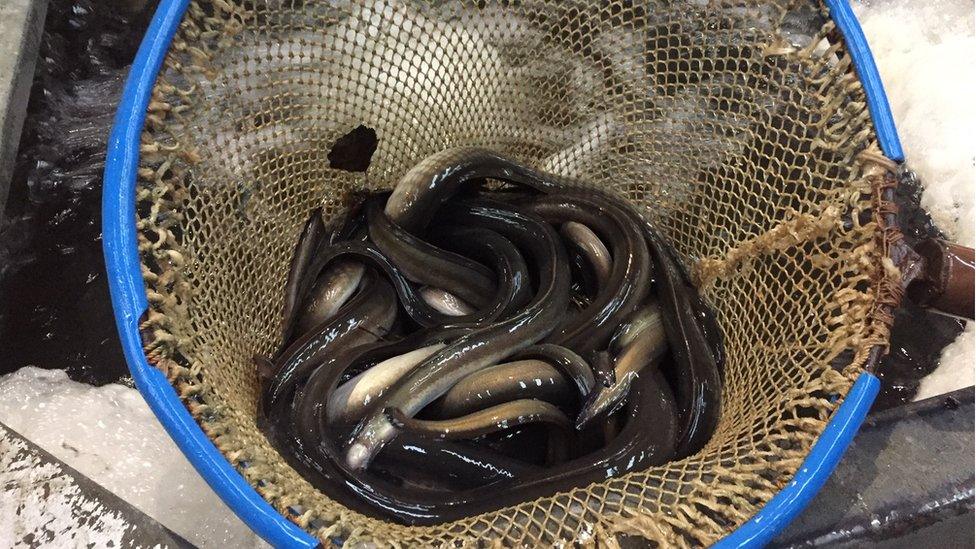
The government has warned that in a no-deal Brexit scenario the UK "will not be able to import or export European eel".
A review is under way but the co-operative which runs eel fishing on the lough said for now the "matter is out of its hands".
"That's where the concern lies for us, we need the policy makers to agree that such is the impact of Lough Neagh that it's worth effectively continuing that licence to allow us to continue to operate," said spokesman Pat Close.
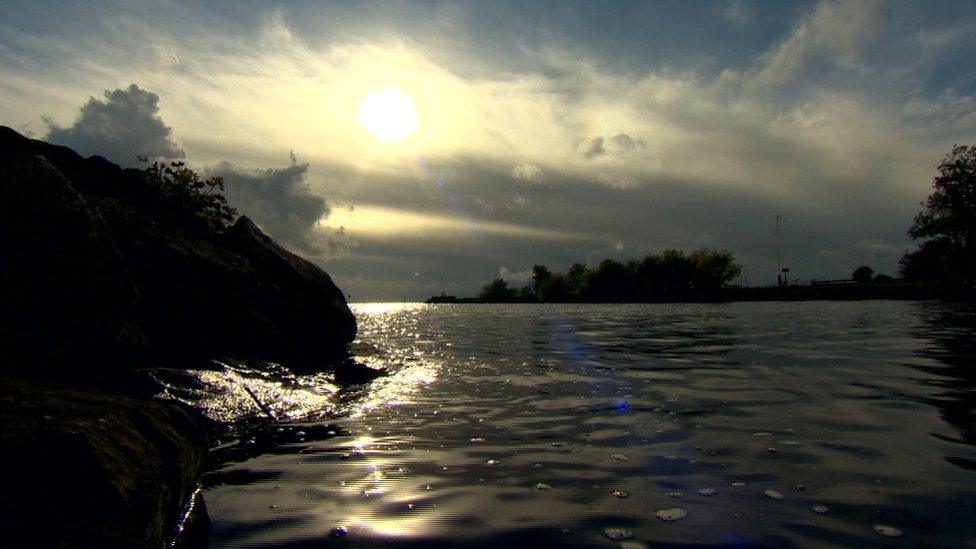
He said it could be several months before the 220 fishermen who work the lough find out if they'll be able to continue catching eels worth about £3m last year.
The fishermen catch around two million eels a year from the lough.
But they also buy juvenile fish, or glass eels, to restock it annually, something they have been doing for a quarter of a century.
Their management plan, a combination of quotas, a cap on boat numbers, and escape channels ensure that around 40% of adult fish return to spawning grounds in the Sargasso Sea in the North Atlantic.
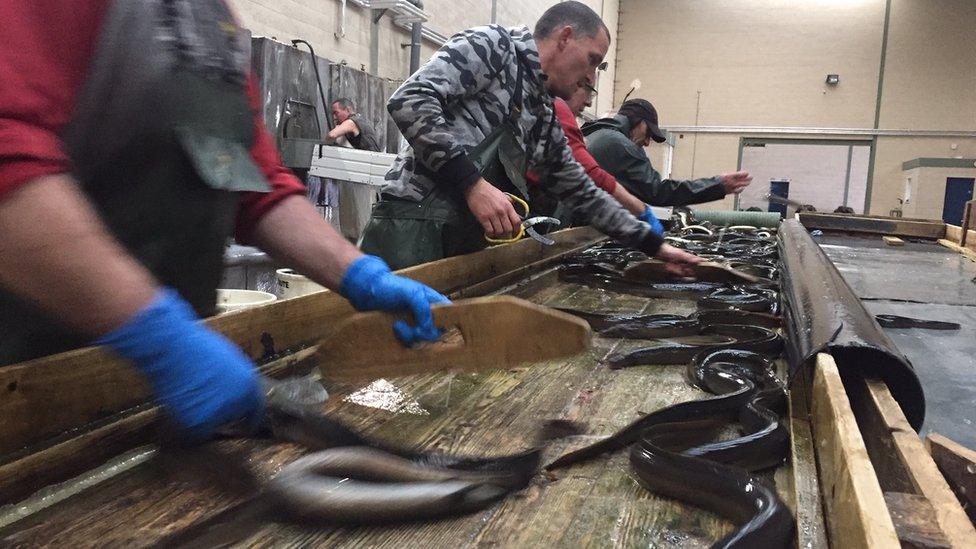
The co-operative says that contributes to the stability of the overall population.
Mr Close said the measures used by Lough Neagh fishermen should mean that the licence is approved but he has concerns that they may still face obstacles as the industry becomes caught up in wider wrangling between the EU and the UK over a post-Brexit trade deal.
- Published21 November 2018
